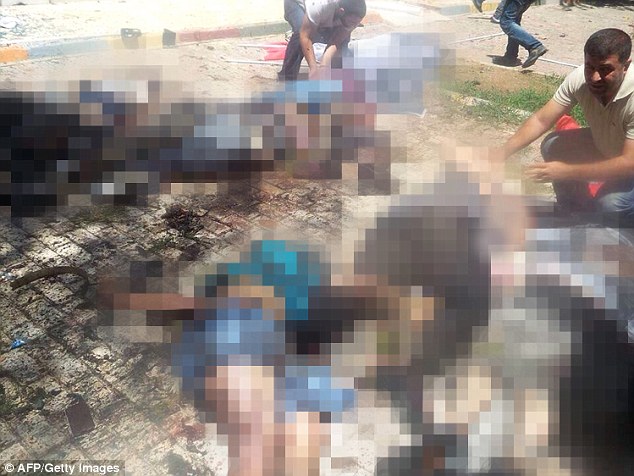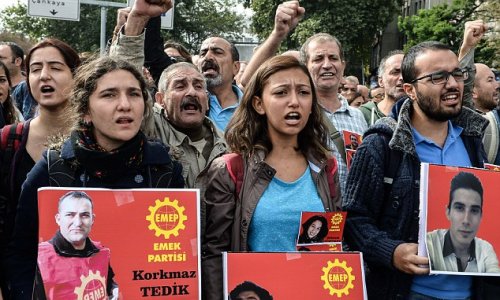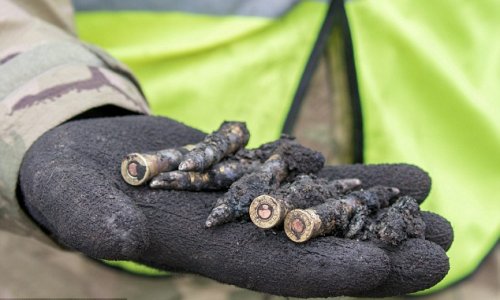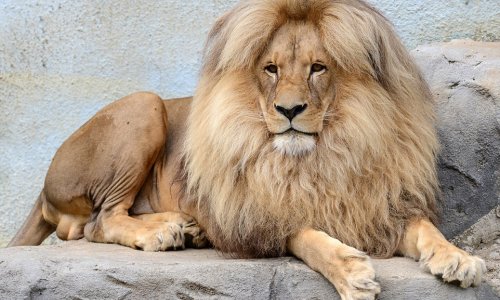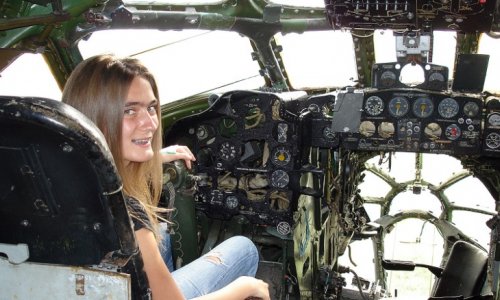Funerals have been held this afternoon for the 31 victims of a suspected ISIS suicide bomb attack in southern Turkey, which also left 100 people injured.
Most of the victims were Kurdish students with the Federation of Socialist Youths, who were rallying in support for the displaced residents of Kobane, outside a cultural centre in the town of Suruc.
The pro-Kurdish activists were calling for access to deliver aid to Kobane when the devastating bomb attack happened.
Turkish officials speaking anonymously said an initial investigation suggests ISIS are behind the atrocity. One witness said they saw a injured woman, who appeared to be wearing a suicide vest.
Mourners gathered to pay their final respects to the victims of the attack in the predominantly Kurdish town of Suruc, situated some six miles from the Syrian town of Kobane.
Despite the appalling attack, the victims' families and friends defiantly united to continue to rally for the Turkish government to assist the Kurds who are struggling to rebuild their lives in Kobane.
Hundreds of pro-Kurdish supporters gathered in the Turkish capital of Istanbul as more pressure continues to be piled on President Tayyip Erdogan to further crackdown on ISIS activity.
Gruesome photographs from the scene have emerged, showing bodies lying beneath trees outside a cultural centre.
The Hurriyet daily said the attacker was an 18-year old woman, but there was no confirmation. If the bomb attack is the work of ISIS, it would symbolise the growing threat of the jihadi group to Turkey.
'Our initial evidence shows that this was a suicide attack by Islamic State,' one senior official in Ankara told Reuters.
A second official also said Islamic State appeared to have been responsible and that the attack was a 'retaliation for the Turkish government's efforts to fight terrorism'.
Turkish President Tayyip Erdogan said 28 people were killed and around 100 wounded, although the death toll is expected to rise.
It was the bloodiest such attack in NATO member Turkey since at least 50 people were killed in the town of Reyhanli near the border in 2013.
'I saw more than 20 bodies. I think the number of wounded is more than 50. They are still being put into ambulances,' one witness named as Mehmet said. 'It was a huge explosion, we all shook.'
The explosion comes weeks after Turkey deployed additional troops and equipment along parts of its border with Syria, concerned about the risk of spillover as fighting between Kurdish forces, rebel groups, Syrian government troops and Islamic State militants intensifies.
Turkey's leaders have said they do not plan any unilateral military incursion into Syria but have also said they will do whatever is necessary to defend the country's borders.
'I condemn those who conducted this brutality,' President Erdogan said. 'Terror has no religion, no country, no race.'
Foreign Secretary Philip Hammond said: 'I condemn unreservedly this sickening attack in Suruç, Turkey, which has taken the lives of so many innocent people. My deepest sympathies are with the families of all those affected.
'The UK condemns all acts of terrorism in the strongest terms and will continue to work closely with our Turkish partners on tackling the threat from international and domestic terrorism.'
British ambassador Richard Moore said on his Twitter account: 'UK stands shoulder to shoulder with Turkey in condemning unequivocally all terrorism. I have kids that age.'
Ankara fears any disorder in the border area could re-ignite an armed Kurdish separatist rebellion by the Kurdistan Workers Party (PKK) that has killed some 40,000 since 1984.
Turkey's Kurds have been enraged by what they see as Ankara's failure to do more to stop Islamic State. The PKK held the government responsible for Monday's attack, saying it had 'supported and cultivated' Islamic State against the Kurds.
Any unrest would also concern Western allies who seek greater controls on a porous border that serves as a frontline in the battle against Islamic State.
Video footage showed the blast coming from just behind the students as they gathered behind a banner declaring support for Kobane.
Kobani was the site of one of the biggest battles against Islamic State last year and was secured by Syrian Kurdish fighters last month after repeated assaults.
Syrian Kurdish forces, known as the YPG, drove the Islamic militants back from the town with the help of U.S. air strikes, after months of fighting and siege.
The students from the Federation of Socialist Youth Associations had been planning a trip to Kobani to build a library, plant a forest and build a playground, Fatma Edemen, a member of the group wounded in the blast, told Reuters.
'We defended it together and we will rebuild it together', read one of the group's banners at the scene.
'I was behind a banner so I couldn't see the attacker, but we understand it was a suicide attack. I was thrown to the ground but I did not faint. I jumped up and began running before I even realised I was hurt,' Edemen, a 22-year-old journalism student at Ankara University, said by telephone.
An explosion also went off in Kobani shortly afterwards, but there were conflicting accounts of its cause. A monitoring group blamed a car bomb but the YPG said it was ordnance going off during an operation to clear undetonated explosives.
(dailymail.co.uk)

















www.ann.az
Follow us !

